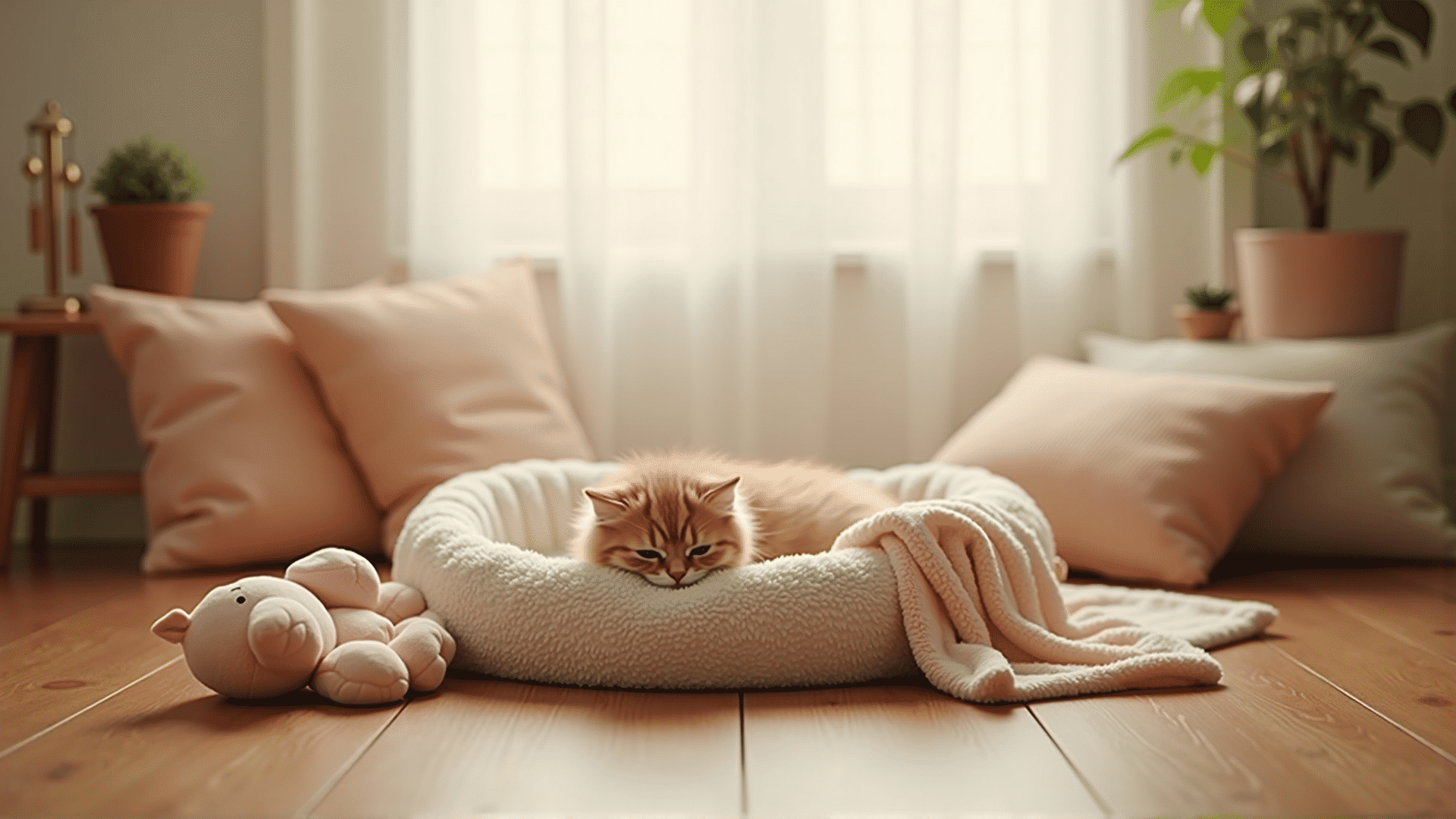Recognizing when your kitten is experiencing anxiety can be crucial for their well-being. While kittens naturally exhibit curiosity and occasional skittishness, prolonged signs of distress may indicate underlying anxiety. Fortunately, there are several strategies you can employ to comfort your furry friend and help them feel more secure in their environment.
Identifying Signs of Anxiety in Kittens
One of the first steps in addressing anxiety in your kitten is learning how to identify the signs. Common indicators may include:
- Excessive Hiding: If your kitten is frequently hiding under furniture or in secluded areas for long periods, it could be a sign they're feeling overwhelmed.
- Aggression: Sudden bouts of aggressive behavior, such as biting or scratching, can be a reaction to stress or fear.
- Vocalizations: While meowing is normal, excessive vocalizations might indicate discomfort or anxiety.
- Changes in Appetite: A noticeable decrease in appetite or refusal to eat may signal that your kitten is distressed.
- Litter Box Issues: Avoiding the litter box or having accidents outside of it can be a sign of stress.
- Over-Grooming: Excessive licking or grooming to the point of creating bald spots can be a self-soothing behavior indicative of anxiety.
Comfort Techniques
Once you've identified the signs of anxiety, it's important to take steps to alleviate their stress:
- Create a Safe Space: Ensure your kitten has a designated area where they can retreat and feel secure. This could be a cozy bed or a quiet corner of a room.
- Maintain Routine: Kittens thrive on routine. Feeding them at the same times each day and having a consistent play schedule can provide a sense of stability.
- Use Pheromone Products: There are various products available that mimic natural feline pheromones. These can be effective in creating a calming atmosphere for anxious kittens.
- Interactive Play: Engaging your kitten in regular play sessions with toys can help distract them and reduce stress.
- Gentle Handling: Always approach your kitten calmly and avoid sudden movements that may startle them. Gentle petting and speaking softly can reassure them.
- Environmental Enrichment: Providing a stimulating environment with scratching posts, climbing trees, and toys can help your kitten expend energy and reduce feelings of anxiety.
When to Seek Professional Help
If your kitten's anxiety persists despite your best efforts, or if their behavior is worsening, it may be time to consult with a veterinarian or an animal behaviorist. They can provide insights into potential underlying issues and recommend further treatment or intervention strategies.
In conclusion, recognizing and addressing anxiety in kittens is essential for their overall health and happiness. By creating a safe and engaging environment, maintaining routines, and seeking professional advice when necessary, you can help alleviate your kitten's anxiety and ensure they grow into a well-adjusted and content feline companion.
